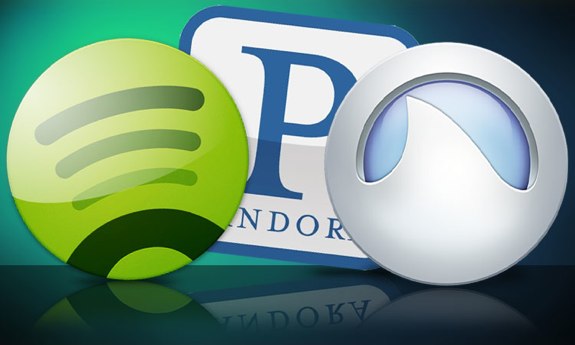Find Our Latest Video Reviews on YouTube!
If you want to stay on top of all of our video reviews of the latest tech, be sure to check out and subscribe to the Gear Live YouTube channel, hosted by Andru Edwards! It’s free!
Wednesday April 4, 2012 3:58 pm
Are cloud music services like Rdio and Spotify the same song and dance?

We sat in on a panel where Pandora's Jackson Gates, Daren Tsui of mSpot, and Kevin Wortis were interviewed by Gartner's Mike McGuire about the future of cloud music services at SXSW. It was an interesting discussion, focusing on what the benefit of the cloud brings to music, and the problems associated with expecting users to pay for something that they've been used to getting for free for at least a generation. It's an interesting time, and obviously the models differ substantially for companies like Pandora and Spotify, for example. Click on through for the highlights of the discussion!
Thoughts on cloud services going into televisions?
Pandora is in hundreds of CE devices, offering a much better experience than traditional radio. Through TV, iPhone docks, car integration, and more. Take great music with you wherever you want it.
How do search discovery patterns change?
Recommendation discoveries are crucial for the success of cloud music services. There are millions of songs, so the best way to find and discover is by recommendation whether it is a friend or a genome-based thing.
Word of mouth and your most trusted source is your friends. Also, curators play a major role. These can be as simple as music blogs that you like.
Might Pandora introduce curators?
Pandora is not the arbiter of cool, so they don't tell you what to listen to. The vast majority of Pandora users want to share some of their listening behavior some of the time (not all of the time.)
It would be a shame if our music listening became so public that we became ashamed or felt like we had to always listen to the right thing. It needs to be something for you, not the right song for everybody.
For the API strategy to work, you need scale as far as the number of users. With an API you get really smart people helping you determine what your music service can become.
The best idea is to have a completely open API, but unfortunately there have to be rules. One example is that Spotify can't let API users charge their end users to access those API services.
In the interest of simplicity, Pandora doesn't play through other services. It's API instead brings Pandora to cars and built-in CE, but not for third-party developers to build on top of.
Why aren't we seeing people subscribing more quickly to cloud music services?
Usability, access, and cost are the barriers for success, with cost being the biggest.
Based on research and focus groups, the majority of people aren't willing to pay $9.99. If you can make a Spotify-like service to be $5 a month - including mobile - then you are onto something.
$9.99 for all the music you can listen to in a month is an incredible deal, the problem is that generations have been used to free. Therefore, it's gonna take a generation or two to get people willing to pay.
Record labels messed it up by overcharging at $18 an album for a CD that was substantially less money to make than records.
How are we defining success?
Spotify success is in the national and international conversation that it's sparked. This is going to help move things along.
An exercise was done that showed that if you ask people to pay $.99 for a song versus $.99 for an app that lets you play that one song an unlimited number of times, many more people were willing to pay for the app than the actual content.
Latest Gear Live Videos
Advertisement
Advertisement
Advertisement
© Gear Live Inc. {year} – User-posted content, unless source is quoted, is licensed under a Creative Commons Public Domain License. Gear Live graphics, logos, designs, page headers, button icons, videos, articles, blogs, forums, scripts and other service names are the trademarks of Gear Live Inc.











